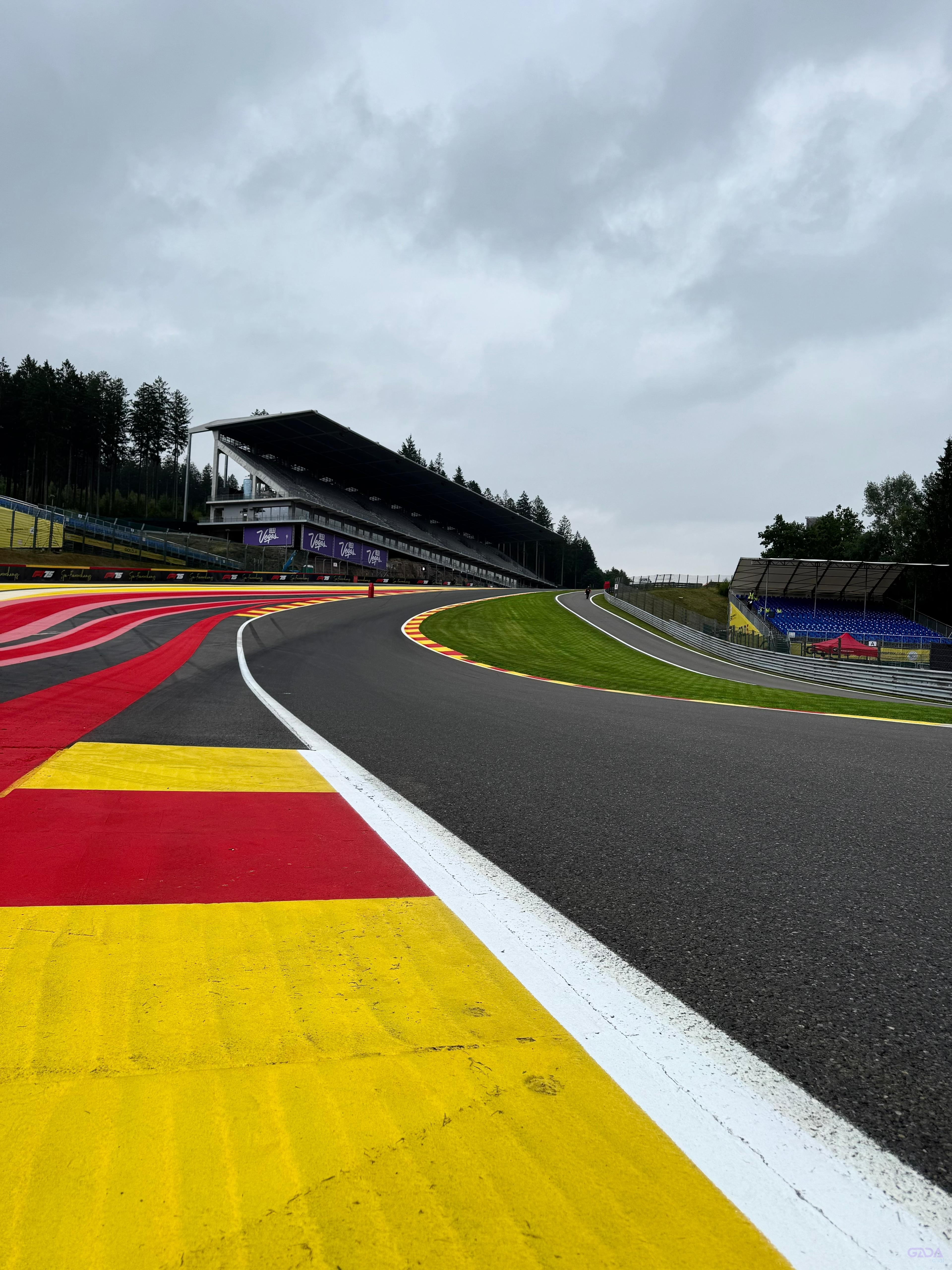NO ONE SOARS AS AN EAGLE WITH A GRASSHOPPER MENTALITY.
EVERY CHALLENGE IS TO BRING OUT THE CHAMPION IN YOU.
A PERCENTAGE OF OUR INCOME IS COMMITTED TO WELFARE.
POSSESSING A BREAKTHROUGH MENTALITY IS KEY TO COMMANDING SUPERNATURAL BREAKTHROUGH.
NOTHING FLIES LIKE FAVOUR IN THE KINGDOM OF LIGHT.
EVERY DIM SOUL, IS A POTENTIAL STAR.
AMEN IS NOT WHAT RELEASES THE BLESSING, RATHER FAITH.
OUR TRIAL OF FAITH IS TO BRING OUT THE GOLD IN US.
THE COMPANY YOU KEEP, IS A VITAL FACTOR IN DETERMINING WHAT AWAITS YOU.
BLESSING PROCLAIMED ARE RELEASED ACCORDING TO YOUR FAITH.
- Bishop David Oyedepo on UNVEILING THE BREAKTHROUGH POWER OF LOVE (3A) at Covenant Day Of Business And Career Breakthrough Service || 20th July 2025 || Faith Tabernacle, Canaanland|| First Sunday Service || Part F.
Stop hanging around the airport building, it doesn't change your level. Get on board! I still check today, what will Hagin do in this circumstance, from his writings. Get on board. Thank you Jesus. Church Gist. He never went on attack against any ministry. I don't know what God sent Him. He is answerable to God, not to me. I am not set up as a judge, I am on an errand. Praise God. I heard Him say, "Don't bother to reply your critics, I don't bother to reply my critics. Just get on board, keep going. Keep going to where you are sent." Can I hear your Amen. Church Gist. That is what it means to get on board.
What do they do in this commission, that I am not doing? Recently, I saw that we started Creativity Promotion Fund in Kaduna to help people to have something positive doing. Creativity Promotion Fund. It began in Kaduna '85. Church Gist. We are on the way to help at all times, through various means. Up till now, a percentage of our income, globally, is committed to welfare. When you hear they ministered to 30,000 people, it is from it. You hear that there is natural disaster somewhere and they push in resources to alleviate the suffering of the people, it is from it.
This ministry is a tithing ministry, as small as it is. Somebody's story has changed, in the Name of Jesus. Get on board. Because by their fruits, you shall know them. Matthew 7:20. Get on board. The company you keep, is a vital factor in determining what awaits you. Get on board. Possessing a breakthrough mentality is key to commanding supernatural breakthroughs in the adventure of life. As far as your eyes can see, unto you will I give it. As a man thinks in his heart, so is he. You have a breakthrough heritage in Christ, let it come from your mentality. Church Gist. Remember the overcomers' mentality. That means, whatever is born of God overcomes the world. So possess an overcomers' mentality.
Be reminded that every challenge among us is to bring out the champion in us. I don't know how many are challenged today in one area or another, the champion in you is coming out. Proverbs 27:21. Every champion today is a fruit of the challenges they overcame. You are coming out!
In 1 Peter 1:6-7, our trial of faith is to bring out the gold in us. The treasures in us, the precious things in us. And when He has tried me, Job said, I shall come forth as gold.
- Your trial today, God is turning them to triumph. Today is your day of escape. As the oil comes on you, it turns your trials to testimony.
Remember also, that no one soars as an eagle with a grasshopper's mentality. We are in our own eyes as grasshoppers, so they lost out. Numbers 13:30-33. Church Gist. Can I have you say with me, 'Every dim soul, is a potential star. But one cannot imagine a star with a mediocre's mentality.' Revelation 22:16. You have been sent, I have been sent as a star. Let that become your new mentality.
I am not redeemed a struggler, I am redeemed a light of my world, to shine forth where things are down. Church Gist. Prophetic blessings trigger breakthroughs.
- Every blessing declared over you today will culminate into blessing in your life.
Melchizedek proclaimed a blessing on Abraham and the blessing began to speak and is still speaking till now. The blessings being proclaimed on you today will keep speaking in your life. Prophetic blessings here connotes blessings proclaimed that are in line with Scriptures.For example, all your labour in the vineyard since the year began, shall be openly rewarded and you shall be scaling new heights from this time forward. Why? If they obey and serve Him, they shall spend their days in prosperity and their years in pleasures. Job 36:11. Matthew 6:33. Habakkuk 3:18-19. So when that Word is proclaimed in line with Scriptures, you have committed God to confirm it.
- In the Name of Jesus, every blessing proclaimed on you today shall be confirmed with speed.
As I close, blessings are released on a 2 channel basis, faith from the source of the proclaimer and faith on the path of the recipient. Church Gist. Every blessing proclaimed is released according to your faith. The blessing is released, but your faith is required to receive those blessings.
Mark 6:5-6. Please note, that Amen is not what releases the blessing but faith in the Word to which you are saying Amen to. Faith in the Word. Now, for everyone serving God in this Church, the Word says, all these things that others are dying to get shall be added to you. Therefore, welcome to your realm of favour. Church Gist. Nothing flies like favour in the Kingdom of light. Favour brought Joseph out of the prison, to the palace overnight.
- In the Name of Jesus, the favour that attends to them that serve Him is released upon your life today.
You belong to the breakthrough family of Jesus. The least among us is ordained to be greater than the greatest in the Old Testament. Therefore, I decree that the Daniel in you comes forth, the Isaac in you comes alive, the Abraham in you comes to light, the Peter in your comes alive in the Name of Jesus.
- I decree God's hand upon the works of your hand in the Name of Jesus.
- For every point of contact you brought, I decree an encounter with God that will open new chapters.
- Nothing fails in your hand again. You will never be at the same spot again. A new day dawns on your life today in the Name of Jesus.
- Breakthrough on every side. Breakthrough at home. Breakthrough at work. Breakthrough in your children's lives. Breakthrough in your going out and coming in. It shall be breakthrough news from henceforth. Your new era package will start speaking. This operation will be a launch to your next level and so shall it be. Give the Lord a big hand of praise. Thank you Jesus.
NO ONE SOARS AS AN EAGLE WITH A GRASSHOPPER MENTALITY.
EVERY CHALLENGE IS TO BRING OUT THE CHAMPION IN YOU.
A PERCENTAGE OF OUR INCOME IS COMMITTED TO WELFARE.
POSSESSING A BREAKTHROUGH MENTALITY IS KEY TO COMMANDING SUPERNATURAL BREAKTHROUGH.
NOTHING FLIES LIKE FAVOUR IN THE KINGDOM OF LIGHT.
EVERY DIM SOUL, IS A POTENTIAL STAR.
AMEN IS NOT WHAT RELEASES THE BLESSING, RATHER FAITH.
OUR TRIAL OF FAITH IS TO BRING OUT THE GOLD IN US.
THE COMPANY YOU KEEP, IS A VITAL FACTOR IN DETERMINING WHAT AWAITS YOU.
BLESSING PROCLAIMED ARE RELEASED ACCORDING TO YOUR FAITH.
- Bishop David Oyedepo on UNVEILING THE BREAKTHROUGH POWER OF LOVE (3A) at Covenant Day Of Business And Career Breakthrough Service || 20th July 2025 || Faith Tabernacle, Canaanland|| First Sunday Service || Part F.
Stop hanging around the airport building, it doesn't change your level. Get on board! I still check today, what will Hagin do in this circumstance, from his writings. Get on board. Thank you Jesus. Church Gist. He never went on attack against any ministry. I don't know what God sent Him. He is answerable to God, not to me. I am not set up as a judge, I am on an errand. Praise God. I heard Him say, "Don't bother to reply your critics, I don't bother to reply my critics. Just get on board, keep going. Keep going to where you are sent." Can I hear your Amen. Church Gist. That is what it means to get on board.
What do they do in this commission, that I am not doing? Recently, I saw that we started Creativity Promotion Fund in Kaduna to help people to have something positive doing. Creativity Promotion Fund. It began in Kaduna '85. Church Gist. We are on the way to help at all times, through various means. Up till now, a percentage of our income, globally, is committed to welfare. When you hear they ministered to 30,000 people, it is from it. You hear that there is natural disaster somewhere and they push in resources to alleviate the suffering of the people, it is from it.
This ministry is a tithing ministry, as small as it is. Somebody's story has changed, in the Name of Jesus. Get on board. Because by their fruits, you shall know them. Matthew 7:20. Get on board. The company you keep, is a vital factor in determining what awaits you. Get on board. Possessing a breakthrough mentality is key to commanding supernatural breakthroughs in the adventure of life. As far as your eyes can see, unto you will I give it. As a man thinks in his heart, so is he. You have a breakthrough heritage in Christ, let it come from your mentality. Church Gist. Remember the overcomers' mentality. That means, whatever is born of God overcomes the world. So possess an overcomers' mentality.
Be reminded that every challenge among us is to bring out the champion in us. I don't know how many are challenged today in one area or another, the champion in you is coming out. Proverbs 27:21. Every champion today is a fruit of the challenges they overcame. You are coming out!
In 1 Peter 1:6-7, our trial of faith is to bring out the gold in us. The treasures in us, the precious things in us. And when He has tried me, Job said, I shall come forth as gold.
- Your trial today, God is turning them to triumph. Today is your day of escape. As the oil comes on you, it turns your trials to testimony.
Remember also, that no one soars as an eagle with a grasshopper's mentality. We are in our own eyes as grasshoppers, so they lost out. Numbers 13:30-33. Church Gist. Can I have you say with me, 'Every dim soul, is a potential star. But one cannot imagine a star with a mediocre's mentality.' Revelation 22:16. You have been sent, I have been sent as a star. Let that become your new mentality.
I am not redeemed a struggler, I am redeemed a light of my world, to shine forth where things are down. Church Gist. Prophetic blessings trigger breakthroughs.
- Every blessing declared over you today will culminate into blessing in your life.
Melchizedek proclaimed a blessing on Abraham and the blessing began to speak and is still speaking till now. The blessings being proclaimed on you today will keep speaking in your life. Prophetic blessings here connotes blessings proclaimed that are in line with Scriptures.For example, all your labour in the vineyard since the year began, shall be openly rewarded and you shall be scaling new heights from this time forward. Why? If they obey and serve Him, they shall spend their days in prosperity and their years in pleasures. Job 36:11. Matthew 6:33. Habakkuk 3:18-19. So when that Word is proclaimed in line with Scriptures, you have committed God to confirm it.
- In the Name of Jesus, every blessing proclaimed on you today shall be confirmed with speed.
As I close, blessings are released on a 2 channel basis, faith from the source of the proclaimer and faith on the path of the recipient. Church Gist. Every blessing proclaimed is released according to your faith. The blessing is released, but your faith is required to receive those blessings.
Mark 6:5-6. Please note, that Amen is not what releases the blessing but faith in the Word to which you are saying Amen to. Faith in the Word. Now, for everyone serving God in this Church, the Word says, all these things that others are dying to get shall be added to you. Therefore, welcome to your realm of favour. Church Gist. Nothing flies like favour in the Kingdom of light. Favour brought Joseph out of the prison, to the palace overnight.
- In the Name of Jesus, the favour that attends to them that serve Him is released upon your life today.
You belong to the breakthrough family of Jesus. The least among us is ordained to be greater than the greatest in the Old Testament. Therefore, I decree that the Daniel in you comes forth, the Isaac in you comes alive, the Abraham in you comes to light, the Peter in your comes alive in the Name of Jesus.
- I decree God's hand upon the works of your hand in the Name of Jesus.
- For every point of contact you brought, I decree an encounter with God that will open new chapters.
- Nothing fails in your hand again. You will never be at the same spot again. A new day dawns on your life today in the Name of Jesus.
- Breakthrough on every side. Breakthrough at home. Breakthrough at work. Breakthrough in your children's lives. Breakthrough in your going out and coming in. It shall be breakthrough news from henceforth. Your new era package will start speaking. This operation will be a launch to your next level and so shall it be. Give the Lord a big hand of praise. Thank you Jesus.









